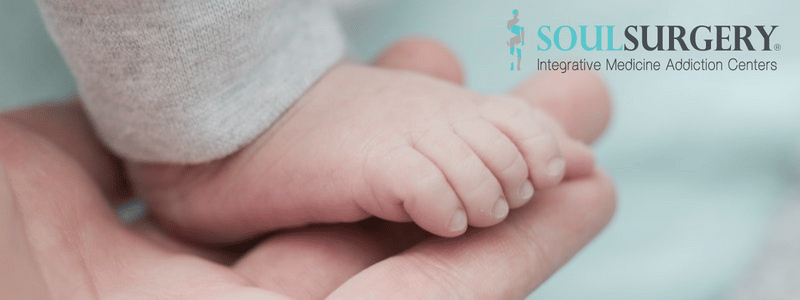
What is Fetal Alcohol Syndrome?



Bringing a child into the world is a rewarding and unique experience. Everyone wants the best for their child, to see them healthy and happy. Still, we all have our battles and struggles.
When it comes to the effect of substances like alcohol on pregnancy, there are serious, lifelong consequences. Learn about the risks and how alcohol can lead to debilitating developmental conditions.
This blog will look at the following questions:
Fetal alcohol syndrome (FAS) is a condition caused by alcohol exposure to a fetus in the womb. FAS can cause a variety of developmental issues, both physically and mentally.
There’s no safe amount of alcohol consumption during pregnancy, and it should be avoided altogether. Any amount of alcohol during pregnancy puts the unborn child at risk of developing FAS.
When a child has fetal alcohol syndrome, they can have several developmental defects, some present at birth and others that can be seen over time, including physical and mental problems.
In extreme cases of FAS, the fetus can develop cerebral palsy, have a premature birth, or be stillborn.

Because the mother carries the fetus, FAS can develop when any alcohol consumption is present during the pregnancy.
While there’s no solid evidence that FAS is genetic or hereditary, some recent studies show a correlation between a baby’s exposure to alcohol before birth and congenital heart disease.
A European Journal of Preventive Cardiology study found that drinking alcohol three months before becoming pregnant could increase the risk of congenital heart disease (44 percent for fathers-to-be and 16 percent for mothers-to-be.) These numbers increase drastically in the case of binge drinking, where it suggests a 52 percent higher likelihood for men and 16 percent for women.
Alcohol should be avoided for the entire duration of pregnancy. That said, the fetus is most at risk of experiencing the damaging effects of alcohol during the first three months of pregnancy. When exposed to alcohol, especially during this time, the fetus is at risk of the most severe effects of FAS, including cerebral palsy, premature delivery, and stillbirth.
A doctor cannot diagnose FAS before birth, but they can assess the mother’s health and lifestyle to determine any fetal development risks. It’s not until the baby is born that the doctor can look for signs and symptoms of fetal alcohol syndrome; this can be done as soon as the initial weeks following birth.
The most surefire way to prevent FAS is to avoid all alcohol consumption during pregnancy. Because some recent studies point to potential health risks to the fetus if their parents drink alcohol before pregnancy, avoiding alcohol several weeks or months before conception could be an added measure of protection.

The devastating effects of FAS impact a person throughout their childhood into adulthood. Thankfully, despite being a life-long condition, there are treatment programs to help children born with FAS learn essential skills. The Centers for Disease Control outlines some of these services, including learning to talk, walk, and interact with others.
The good news is that FAS is a preventable condition, and there is support for women struggling with alcoholism to achieve sobriety before becoming pregnant.
Testing newborns for alcohol is a part of routine newborn screening. That said, the screening will likely only pick up on alcohol consumed 2-3 days before delivery. If a child tests positive for alcohol in their system or shows signs of FAS, this will be reported to CPS.
Adults with FAS carry many defects from childhood into adulthood, such as low body weight, extreme mood swings, small head sizes, and a short attention span, among others, as mentioned earlier.
Problems that can develop in adulthood for individuals with FAS include the following:
If you or a loved one suffers from alcoholism, there’s no need to try and overcome it alone. Allow our team of compassionate experts to come alongside you. With our state-of-the-art addiction facilities and treatments, we have everything you need to obtain sobriety.
Along with our substance use programs, Soul Surgery offers treatments for other conditions, including mental illness. Contact us today to learn more about how we can serve you and redirect your path to a brighter future.







Take the first step in your journey to recovery.
"*" indicates required fields